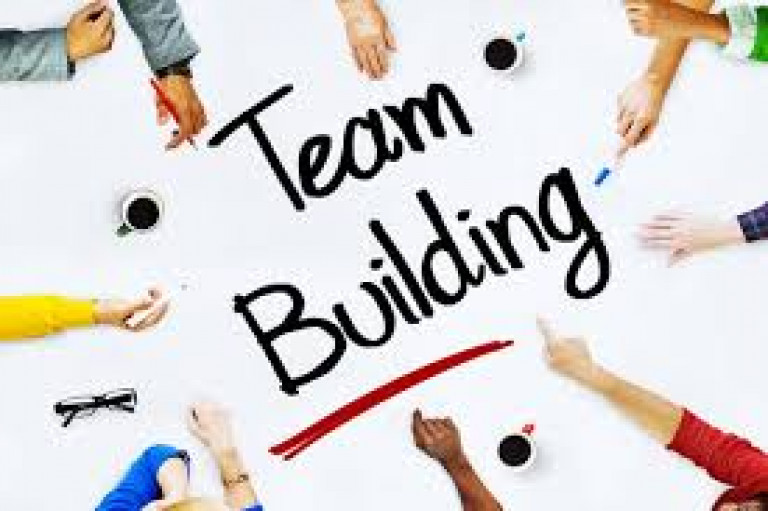As we spend the majority of our waking hours at work, it's no surprise that the personalities of our colleagues can have a significant impact on our overall job satisfaction.
Dealing with difficult work personalities can be a real challenge, whether it's the micromanager who won't stop breathing down your neck or the office gossip who always seems to be stirring up drama. But don't worry! In this article, we'll explore ten common work personality types and provide tips and strategies for dealing with them effectively. By understanding the behaviors and motivations of these personality types, you'll be better equipped to navigate tricky team dynamics and maintain your sanity in the process.
Read on to learn how to deal with some of the most common work personality types you might run into at work and how you can engage them at a deeper level.
What is a Workplace Personality Type?
A workplace personality type is a particular set of traits, demeanors, and attitudes that a person displays in a professional- or even personal- setting. These personality types can greatly impact how people interact at work, how they approach their work, and how that ultimately affects the organization's success.
We're human beings with diverse traits so various workplace personalities do exist, even more than we can categorize. Each personality has its advantages and disadvantages. Others might be more introverted and analytical, while others could be more naturally outgoing and collaborative.
Others can thrive on spontaneity and inventive problem-solving, while some could be highly organized and detail-oriented. To create a positive working culture, it is essential to understand the many personality types present at work.
Why is understanding one's personality type important? By knowing each personality type's distinctive strengths and challenges, employers and employees can collaborate to create better teams, increase communication, and cultivate a climate of mutual respect and understanding.
If you’re looking for a tool to help you understand, aggregate, and monitor your team’s work personalities and preferences, you should check out Workstyle.io. This tool will help you understand your team mates better and develop strategies to keep your members motivated, hungry, and happy at work.
Click here to use Workstyle.io today.
10 Types of Workplace Personalities
So what are some different personality types and how can you deal with and maximize them for optimal employee performance and workplace engagement? Here are ten personalities that we've seen in the workplace.
The Espresso Extraordinaire
Individuals with this work personality type are known for their high energy, constant movement, and eagerness to take on new tasks. They tend to be impulsive and act quickly without considering all the consequences.
In high-stress and action-oriented environments, these personality types can be natural-born leaders. Managing this type of personality requires providing them with a variety of tasks to keep them engaged and leverage their infectious enthusiasm. However, it's important to help them slow down and reflect, to avoid burnout or making hasty decisions.
The Harmonious Hummingbird
These individuals are recognized for their talent in promoting a peaceful and harmonious workplace, often serving as mediators in times of conflict.
While their conflict-resolution skills are valuable, they tend to avoid confrontation excessively. Even in a remote work environment or hybrid work arrangements, people with these personality dimensions tend to be the glue of the team.
To support their personal and professional growth, it's essential to encourage them to express their thoughts and feelings openly and help them recognize that some level of conflict is natural and can lead to positive change.
The Strategy Sorcerer
Visionaries are uniquely ableto visualize the big picture and make plans. Although they are great at thinking strategically, they might find it difficult to manage the complexity of daily tasks.
When you need to slow down and take a more calculated approach, someone with this personality will be a great leader. They love brainstorming sessions and always have new approaches and tactics when presented with a problem. To collaborate successfully with them, you must give them precise, unambiguous directions and ensure that they have a strong support system to handle the details.
The Reliable Rock
Individuals with this work personality type are highly dependable and consistent, often the go-to person to get the job done. They could, however, struggle with embracing change.
When implementing new initiatives, it's crucial to communicate clearly, explaining the reasons behind the changes, and how they'll benefit everyone. By doing so, you can help them understand the benefits of change and engage them in the process.
The Chameleon Charmer
Individuals with this work personality type possess a remarkable ability to adapt to diverse situations and people, making them valuable team players who can easily fit into any group.
However, they can face challenges in defining their professional identity and struggle with indecisiveness. To support their growth and development, it's important to encourage them to explore and develop their unique work style and make independent decisions.
The Passionate Pioneer
Individuals with this work personality type are natural innovators who are constantly seeking new ideas and better ways to approach tasks. They could feel frustrated by bureaucracy and slow-moving progress. To harness their potential and help them thrive, it's crucial to provide them with the freedom to explore their ideas and ensure they have access to the necessary resources to execute them.
The Data Detective
Individuals with this work personality type thrive on analyzing data and numbers to identify patterns and trends. However, they can become overly focused on the details and lose sight of the bigger picture.
These types of workers are the logician personality types. They love data, details, and interpretations that explain trends and experiences. To properly supervise them, it's essential to provide context by demonstrating how their work fits into the larger strategy and goals of the organization.
The Feedback Fanatic
Individuals with this work personality type are constantly seeking ways to improve and thrive on receiving feedback to enhance their skills. However, they can be overly self-critical and also critical of others.
It's crucial to provide regular input and feedback, constructively highlighting their strengths and areas for improvement. Additionally, it's important to encourage them to maintain a healthy work-life balance to prevent burnout and ensure they continue to grow and excel.
The Solo Stallion
Individuals with this work personality type are highly self-sufficient and thrive in independent work settings, producing high-quality work with minimal supervision. However, they could face challenges when working in teams. In a remote work arrangement, these types of personalities seem to thrive as they love autonomy.
What helps with these personality types is to assign tasks that allow them to work autonomously while also involving them in team activities to cultivate collaboration and teamwork.
The Timekeeper Tortoise
Individuals with this work personality type are methodical and precise, prioritizing accuracy over speed in their work. However, they may struggle in a fast-paced office environment with tight deadlines.
It's important to acknowledge their focus on producing high-quality work and provide them with realistic timelines to complete their tasks.
Why understanding different personality types matters
Understanding different personality styles and types is crucial in the workplace because it allows individuals and teams to work together more effectively. When people with different personalities work together, disputes and clashes can lower employee morale and work productivity.
Understanding personality differences helps you find ways to synergize a team and let them work according to their own strengths and weaknesses. Team members can learn to respect and use each other's strengths by recognizing each personality type's particular strengths and weaknesses, which will improve collaboration and, in turn, lead to better outcomes.
Having a better understanding of personality types can help managers and leaders connect with and better understand their team members, resulting in better management and a happier workplace.
Frequently Asked Questions
What kinds of personality tests can I use for my team?
The Myers-Briggs Type Indicator (MBTI), the Big Five Personality Traits assessment, and the DISC evaluation are just a few examples of the different personality tests that are accessible and can be used for your team.
A popular personality test, the MBTI divides people into 16 different personality types based on their preferences for extraversion versus introversion, sensing versus intuition, thinking versus feeling, and judging versus perceiving.
The Big Five Personality Traits Evaluation measures openness, conscientiousness, extraversion, agreeableness, and neuroticism, among other traits. The DISC evaluation classifies people according to their behavioral inclinations in the four categories of dominance, influence, stability, and conscientiousness.
To get access to all these personality assessments, you can try out Workstyle.io, a team-building and engagement tool that helps you discover your team’s - personalities and build better teams.
With this tool, you’ll have access to:
- 8 Different Personality Tests, including the Big 5 personality test, DISC personality test, And 6 more
- Working Style Preferences (Strengths & Motivators, Optimal Environment, Hobbies & more)
- IceBreaker Questions for teams
- Self Descriptor Scales for Communication & Management Styles, Work Standards, and Working Relations
Click here to use Workstyle.io today.
Should I have new hires take personality tests during onboarding?
It depends on the purpose and relevance of the personality tests to the job and the team's dynamics. Personality tests can be useful tools for assessing job fit, identifying potential areas of conflict, and understanding team dynamics.
You should use reliable and validated workplace personality tests and ensure that you use the results ethically and appropriately. It’s important to communicate to new hires the purpose and implications of the tests and obtain their informed consent.
If you decide to use personality tests during onboarding, you should treat the results with sensitivity and use them as a starting point for further discussion and development, rather than making rigid decisions based solely on the test results.
Can individuals have multiple work personality types?
Yes, individuals can exhibit traits from multiple work personality types, and it's not uncommon to have a blend of different types. Personality is a complex and multi-dimensional construct, and people can express various characteristics and behaviors depending on the situation and context.
We must recognize that work personality types are not static, and individuals could exhibit different traits or evolve. You should approach personality types as a guide rather than a definitive label and use them to better understand and communicate with team members.
Can personality types change over time?
Yes, personalities can change over time. People's settings and experiences can mold their personalities, and they may also learn new abilities or form new work habits that impact their personality type at the office.
Several studies and analyses have shown that personalities, while relatively stable, can change even past 70 years old. A person's professional personality type can also change as they advance in experience and take on new positions to better suit their duties.
To effectively manage your team and increase production, you should periodically reevaluate and modify how you interact with various personality types.
How can understanding personality types improve workplace communication?
Understanding workplace personality types improves workplace communication by illuminating how people prefer to communicate and work. An "independent" type would prefer to work alone and have more autonomy, whereas a "collaborator" type might prefer to work in a team and share ideas with others. Individuals can better match the demands of their coworkers and collaborate more successfully by modifying their communication patterns and becoming aware of their preferences.
A better understanding of work personality types can help you recognize and appreciate different strengths and approaches, which promotes an inclusive and respectful workplace culture.
How do I engage other workplace personality types?
The first key is to listen and understand. People are wired differently, and we need to acknowledge each colleague’s unique personality by seeking to empathize and relate.
Of course, it’s impossible to completely put ourselves in someone else’s shoes because you have a personality type of your own. But we can try and get to a point of deeper relation by getting as close as we possibly can to understand where someone is coming from.
After that, it helps to try a few activities and practices that will help you build a safe space to engage your team members’ personality types. Here are some great ideas to try:
Acknowledge their strengths
Take the time to understand the unique strengths of each employee and leverage them to help achieve the goals of the team. When people feel valued for their contributions, they are more likely to be engaged and productive.
Encourage creativity
Encourage people to use their unique personalities to build creative ideas to solve problems and approach tasks. Giving people the opportunity to express their creativity can help them feel more engaged and invested in their work.
Provide meaningful feedback
People want to know that their personality and gifts have value in an organization and that they are making a difference. Regularly providing constructive feedback can help people feel more connected to their work and give them a sense of purpose.
Create a supportive environment
Encourage collaboration and communication among team members. When people feel supported by their colleagues and leaders, they are more likely to feel engaged and invested in their work.
Gamify your get-to-know-you activities
Getting to know one another at a deeper level doesn’t have to be dull and boring. You can make it fun by turning worplace personality discovery into a fun game at work. You can try creating a trivia game out of your team’s personality types. You can use a multiplayer tool like TriviaNerd to develop custom games and ask each other questions about which personality type your coworkers have or similar questions.
Offer development opportunities
Provide opportunities for growth and learning, especially those that allow your team to thrive in their own giftings and personalities. You can create avenues for training, mentoring, or job shadowing. When people feel like they are growing and developing, they are more likely to feel engaged and invested in their work.
How can I identify my work personality type?
One way to identify your work personality type is to take a personality assessment or test, such as the Myers-Briggs Type Indicator (MBTI) which gives you 16 personality types that give your team's personalities, preferences, and roles more clarity.
You should check the Big Five personality traits test or the DISC personality test. You can use this in a team-building activity or even just take the test and discuss it during a team huddle. These tests are available when you sign up to Workstyle.io.
These tests can provide insights into your natural tendencies, preferences, strengths, and areas for improvement in the workplace. Reflecting on your past work experiences and asking for feedback from colleagues and supervisors can also help you identify your work personality type.
Pay attention to how you approach tasks, communicate with others, handle stress and conflict, and interact with different work environments and situations.
Final Words
Better workplace communication, collaboration, and productivity may all be attributed to an awareness of the various work personality types. You can adapt your management and communication styles to match the demands of your team members by being aware of each type's advantages and potential drawbacks. Remember that there are no superior work personalities, and each personality type contributes significantly to the team's success.
It's essential to value diversity and use it to create a welcoming and inclusive work atmosphere. You can successfully lead and assist your team by taking the appropriate strategy to boost engagement, work happiness, and overall performance.




